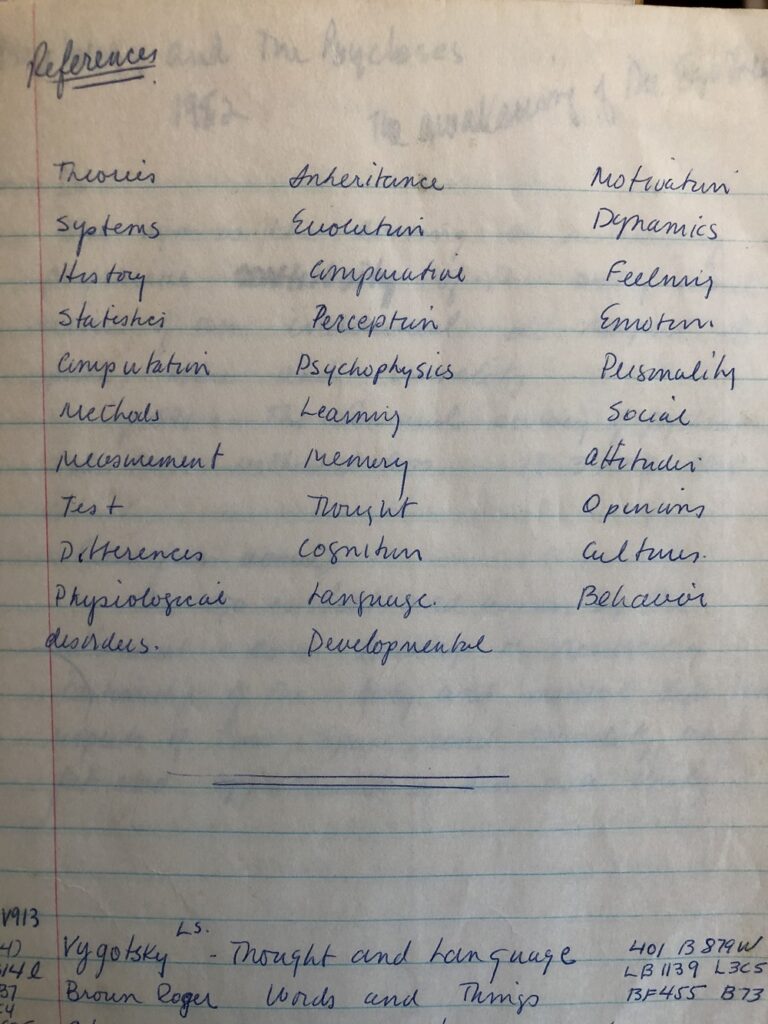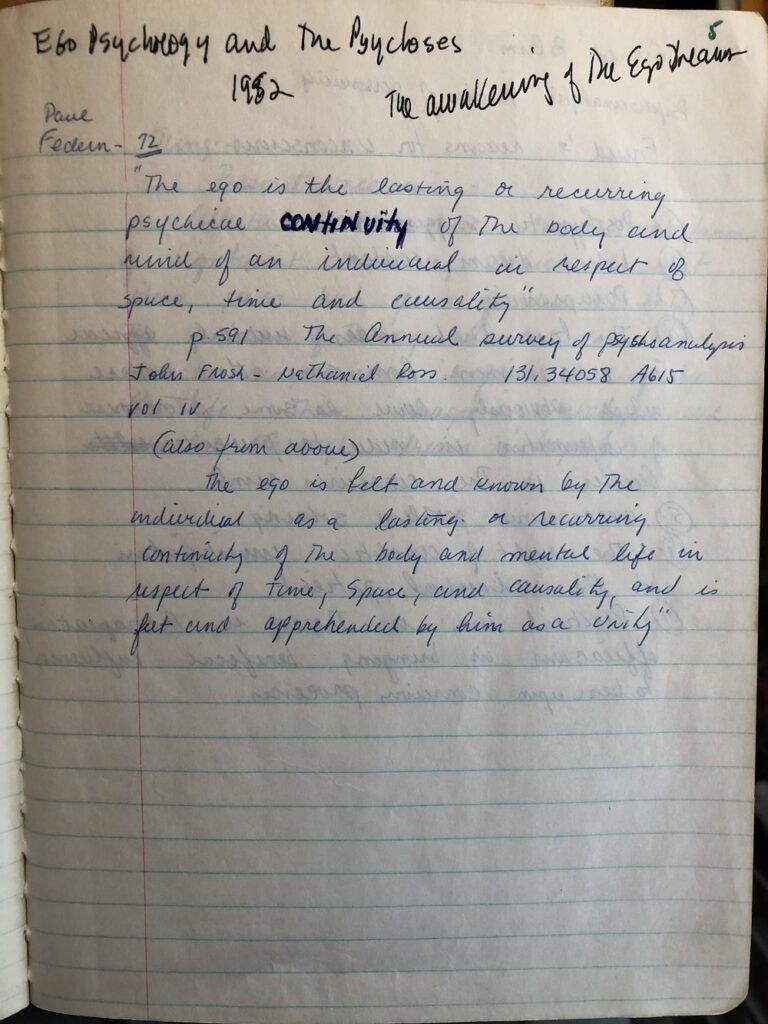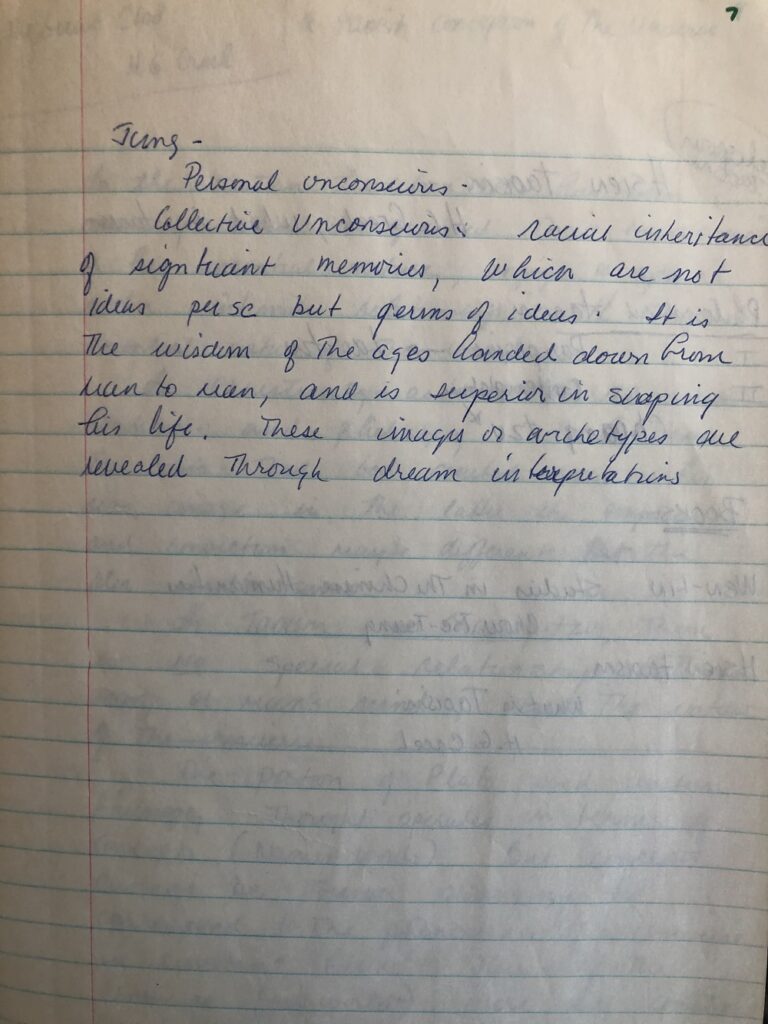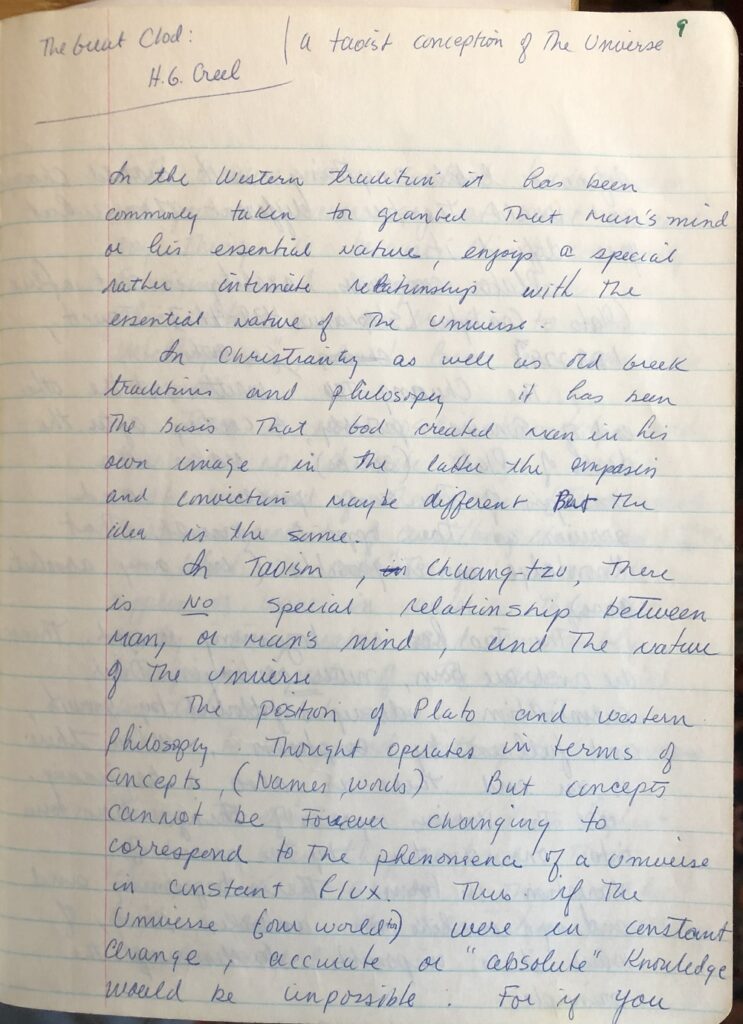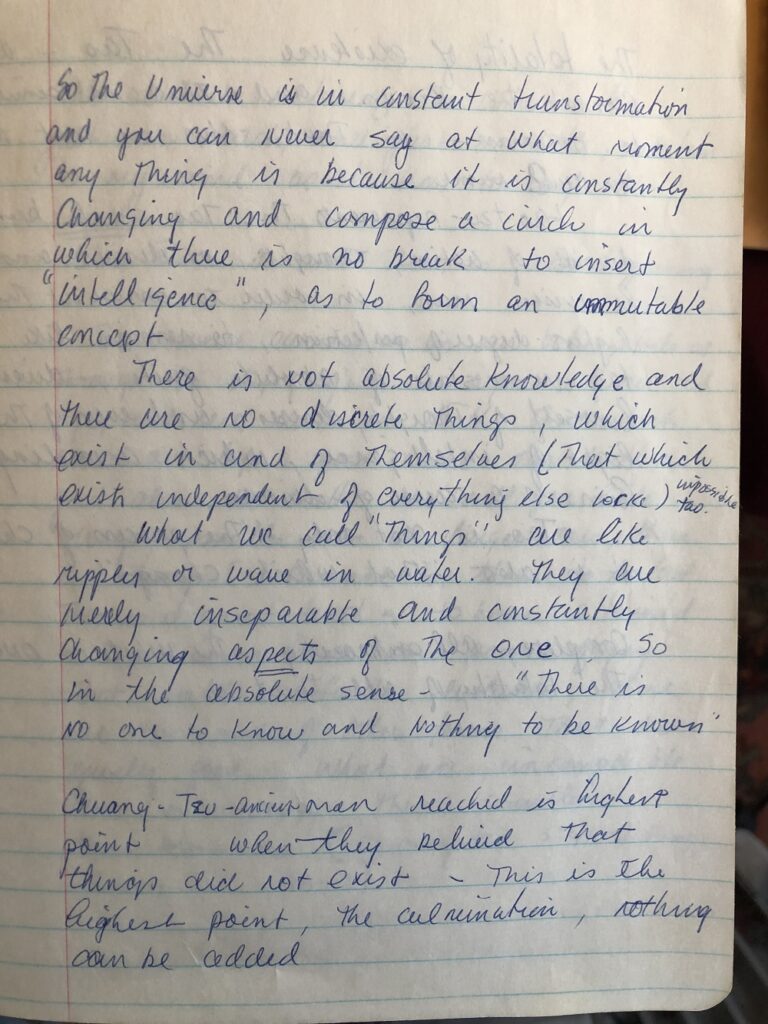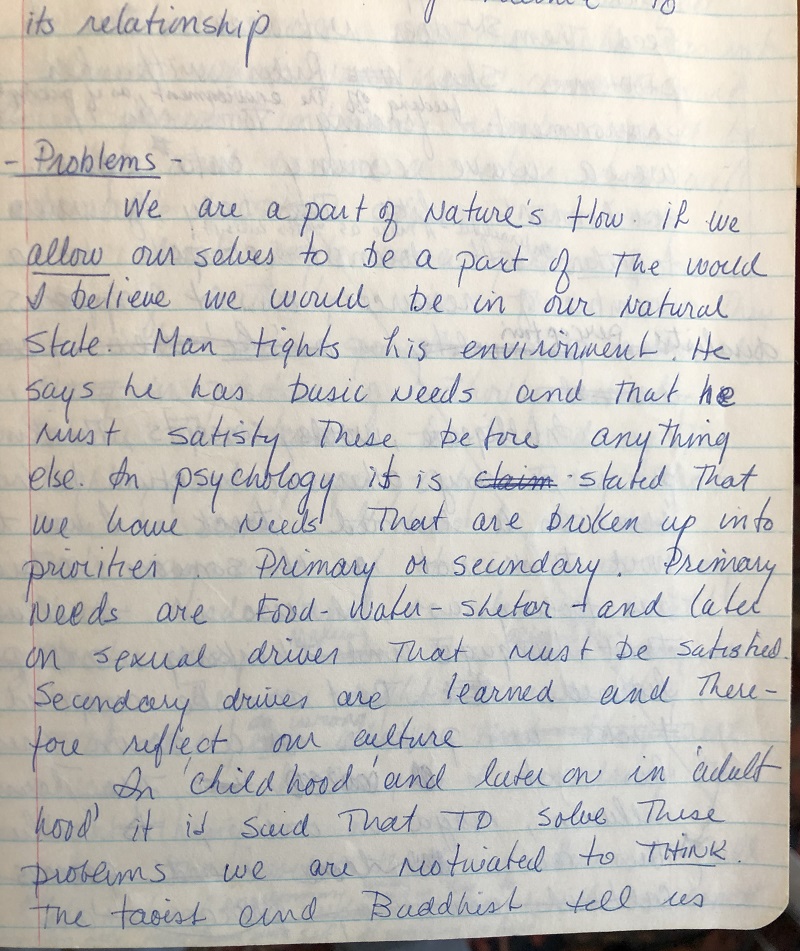Notes from my first day in Tulane Library, New Orleans, 1975.
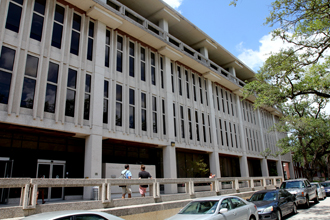
I went to Tulane to study or I should rather say ‘investigate’ what various kinds of during my year at Tulane, my academic journey was not merely a study but an exploration into the diverse realms of literature to make sense of my personal experiences. I embarked on a quest to bridge the gap between my non-verbal understanding and the linguistic expressions of the world around me. Intrigued, I delved into the psychology section of the library, eagerly searching for written reflections that could articulate what I inherently ‘knew.’ Allow me to share with you the thoughts I penned down on that enlightening first day.
“The Farther one pursues knowledge the less one knows”
“Before I utter a word and you have heard it, the whole history of the universe is enacted”
“The cause of death is birth”
“No one can understand things human who does not first understand things divine”
“There is a world which is not of this world though inseparable from it”
“The Wild geese do not intend to cast there reflection;
The water has no mind to retain their image.”
An Appeal to Intuition
Study Subjects:
Theories, inheritance, motivation, systems, evolution, dynamics, history, comparative, feeling, statistics, perception, emotion, computation, psychophysics, personality, methods, learning, social, measurement, memory, attitudes, test, thought, opinions, differences, cognition, cultures, physicological, language, behavior, disorders, development
Though and Language
Words and Things,
Syntactic structure
Universals of Language
Meaning
Cultural anthropology
Culture and personality
Ego
Paul Federn p. 72
“The ego is the lasting or recurring psychical continuity of the body and mind of an individual in respect of space, time and causality”
p. 591 The Annual survey of psychoanalysis, John Frosh, Nathaniel Ross, Vol IV
The ego is felt and known by the individual as a lasting or recurring continuity of the body and mental life in respect of time, space, and causality, and is felt and apprehended by him as a unity”
Freud – Reasons for unconscious
1. Posthypnotic suggestion
2. latent dream content
3. parapraxias
4. The fact that the ideas suddenly appear in consciousness from some other source which obviously serves as some storehouse of information in order to prevent clutter in the conscious mind
5. Unconscious problem solving
6. The result of analytic investigation in the individual patient
Jung – Personal unconscious
Collective unconscious racial inheritance of significant memories, which are not ideas per se but germs of ideas. It is the wisdom of the ages handed down from man to man, and is superior in shaping his life. These images or archetypes are revealed through dream interpretations
